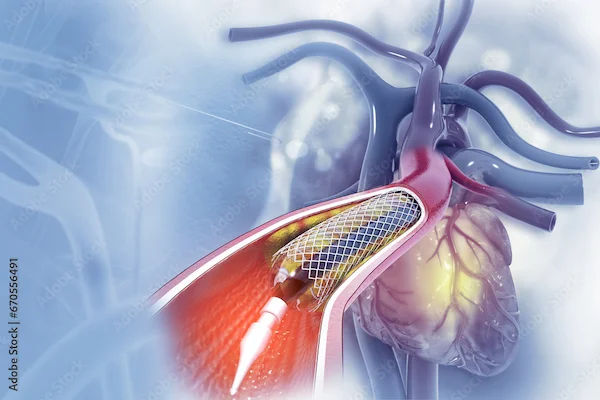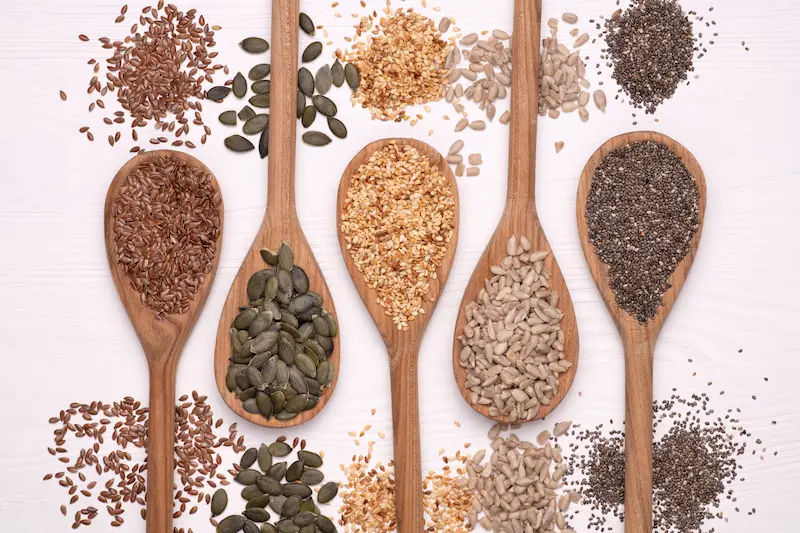Guide to the Benefits of a Morning Walk
A morning walk is one of the simplest yet most powerful lifestyle habits for better physical and mental health. This guide explains how daily walks support heart health, metabolism, weight management, sleep, immunity, and emotional well-being. Learn how much to walk, the right pace, how to stay motivated, and unique upgrades that make your routine enjoyable and effective.

Written by Dr. Md Yusuf Shareef
Reviewed by Dr. D Bhanu Prakash MBBS, AFIH, Advanced certificate in critical care medicine, Fellowship in critical care medicine
Last updated on 13th Jan, 2026

Introduction
A simple morning walk can be one of the most effective investments you make in your health. There is no membership fee, no equipment, and no complicated routine — just you, a pair of shoes, and a short window of time at the start of the day. Research consistently shows that regular walking benefits the heart, metabolism, weight control, mood, sleep, and long-term vitality. Morning walks are especially powerful because they anchor your activity early, before life’s demands interrupt your goals. In this guide, we break down the science in plain language, explain how much is enough, and provide strategies to build a routine that fits any lifestyle — from beginners to those managing long-term health conditions. Whether your aim is weight loss, stress reduction, or overall well-being, these steps can set the tone for a healthier day and a healthier future.Consult a Top General Practitioner for Personalised Advice
Why a Morning Walk Works: The Science in Brief
Morning walking delivers combined cardiovascular, metabolic, brain, and hormonal benefits that build steadily over time.
How walking strengthens the heart, metabolism, and brain
Walking is a moderate aerobic activity that improves blood circulation and supports healthy blood pressure. It boosts insulin sensitivity, helping your muscles use glucose more efficiently. Regular walking releases endorphins, enhances neuroplasticity, and supports clearer thinking. When repeated daily, these effects accumulate into measurable improvements in cardiovascular health, metabolism, and mental sharpness.
How much is enough? Intensity, steps, and time
• Time: Aim for at least 150 minutes of moderate activity per week — such as brisk walking.
• Intensity: Brisk typically means you can talk but not sing.
• Cadence: Around 100 steps per minute suits moderate intensity for many adults.
• Steps: Meaningful benefits have been observed from 6,000–10,000 steps a day, depending on age.
• Morning target: 20–30 minutes most days, or two 10-minute sessions if time is tight.
If you have diabetes, heart disease, or are new to exercise, tailor intensity with guidance from a clinician.
Physical Health Benefits You’ll Feel (and Measure)
Morning walks enhance heart function, improve metabolism, and support healthy weight maintenance.
Heart health and blood pressure
Walking strengthens the heart muscle, supports circulation, and helps reduce blood pressure. Those who walk consistently show lower risks of coronary heart disease and stroke. A morning routine helps ensure you move every day, improving cardiorespiratory fitness.
Easy way to start: Begin with 10–15 minutes at a comfortable pace, increasing by a few minutes each week.
Weight management and metabolism
Walking burns calories, supports appetite regulation, and helps protect muscle mass when paired with strength training twice weekly. For some, walking before breakfast may slightly increase fat burning, but overall daily energy balance matters most. A routine morning walk helps reduce cravings and supports long-term weight maintenance.
Blood sugar control
Morning walking improves insulin sensitivity and typically lowers fasting glucose over time. Adding short walks after meals — even 10 minutes — can reduce sugar spikes, especially for individuals with diabetes or insulin resistance. If blood sugar remains high despite lifestyle changes, Apollo 24|7 offers home sample collection for HbA1c and metabolic tests.
Example weekly progression plan
• Week 1: 15 minutes × 5 days — comfortable pace
• Week 2: 20 minutes × 5 days — finish last 3 minutes brisk
• Week 3: 25 minutes × 5 days — include two 1-minute brisk intervals
• Week 4: 30 minutes × 6 days — brisk final 5 minutes
• Optional: Add 10-minute walk after your largest meal twice weekly
Mental Well-Being and Sleep
Walking outdoors provides mood-boosting activity, natural light exposure, and stress control.
Mood, anxiety, and creativity
A morning walk helps release feel-good hormones, decreases stress levels, and boost focus. It can reduce symptoms of mild to moderate depression and anxiety. Outdoor walking can also inspire clearer thinking and creativity — many report solving problems or having their best ideas while walking.
Morning light for sleep and energy
Exposure to daylight early in the day aligns your body clock, making sleep easier at night and promoting morning alertness. Combining a morning walk with a consistent wake-up time enhances energy and long-term sleep quality.
Immunity, Inflammation, and Longevity
Regular walking supports immune activity while reducing chronic inflammation that contributes to many diseases.
How moderate walking supports immune function
Walking stimulates immune cells and may help reduce common respiratory infections. It also promotes a healthier weight and better mood, indirectly supporting immune health. For those frequently falling ill, checking vitamin D levels may be helpful; Apollo 24|7 offers home testing when advised by a clinician.
Steps and lifespan: what research shows
Higher step counts and regular moderate activity are linked to longer life expectancy and reduced disease risk. You don’t need perfection — consistency matters most. A morning walk sets a positive tone, making overall movement goals easier to achieve.
How to Start — and Stick With — Your Morning Walk
Simple behavioural strategies encourage routine and long-term success.
SMART goals and habit stacking
Set clear plans such as:
“Walk 20 minutes every morning at 7:00, after brushing my teeth.”
Link walking to existing habits and reduce friction by preparing shoes and clothing the night before.
What “brisk” really means
• Effort level: speaking is easy, singing is not
• Around 100 steps per minute
• Add occasional brisk intervals to improve fitness with minimal extra time
Warm-up, cool-down, and progression
Warm up for the first 3–5 minutes, cool down at the end, and stretch your calves and hips. Increase time or brisk segments slowly — about 10% weekly.
Small motivation tip: Choose a tiny destination — like a nearby park — so your walk feels p
Technique, Posture, and Injury Prevention
Correct technique improves comfort and reduces the risk of injuries.
Footwear and walking surfaces
Select cushioned footwear with good support, replacing shoes every 500–800 km. Softer paths reduce stress on joints; alternate between surfaces for variety and injury prevention.
Efficient walking mechanics
• Stand tall, eyes ahead
• Short, quick steps instead of heavy heel striking
• Arms swing comfortably from the shoulders
• Land softly under your body, not too far ahead
Pain signals and when to seek help
Mild soreness is normal when starting. But persistent or sharp pain, chest symptoms, dizziness, or breathlessness require professional guidance. If issues continue for more than two weeks, consult a clinician. Apollo 24|7 offers online doctor support if needed.
Special Populations: Tailoring Your Morning Walk
Morning walking is adaptable to different abilities and health conditions.
For older adults
Walking improves balance, mobility, and confidence. Add light strength exercises twice weekly and simple balance drills after your walk. Walking poles support posture and stability.
Pregnancy and postpartum
Walking is generally safe during an uncomplicated pregnancy and helps reduce back discomfort and fatigue. Postpartum, start slow and increase gradually while listening to your body and following clinical advice.
Managing high blood pressure, diabetes, or heart disease
Moderate-paced walks are safe and beneficial for most. For diabetes, include brief post-meal walks to reduce sugar spikes. If home BP readings remain high or symptoms worsen, seek medical evaluation. Apollo 24|7 can assist with follow-ups and relevant blood tests.
Power-Ups: Ways to Level Up Your Walk
Small upgrades can improve fitness without extending total time.
Intervals, hills, and Nordic walking
• Intervals: alternate brisk and easy minutes
• Hills: natural resistance training, great for strength
• Nordic walking: poles engage the upper body and boost calorie burn
Walking meditation and mindful nature routes
Slow days allow rest and stress relief. On mindful walks, notice sights, sounds, and sensations to stay present.
Outdoors vs treadmill
Both work. Outdoors supports mood and vitamin D exposure, while treadmills offer consistency in bad weather. The best choice is whichever keeps you walking regularly.
Safety, Weather, and Air Quality
Environmental awareness keeps walking safe and enjoyable.
Heat, cold, visibility, and hydration
In hot climates, walk earlier with light clothing and carry water. In cold weather, layer clothing and warm up longer. Use reflective gear in low-light conditions to enhance safety.
Pollution and route timing
Check local air quality reports and avoid high-traffic routes when possible. If air quality is poor, shorten the walk or move indoors. Those with asthma or heart conditions should be especially cautious; consult a doctor if breathing symptoms worsen.
Conclusion
A morning walk benefits your heart, metabolism, immunity, sleep, and mental health — while helping manage stress and body weight. Prioritising consistency over intensity is the key to success. Begin with a pace and duration that feel comfortable and gradually build up. Tailor the routine if you have conditions such as diabetes or high blood pressure, and seek medical advice if pain or symptoms develop. For lab monitoring or professional guidance, Apollo 24|7 provides convenient access to clinicians and home blood tests. Lace up, step outdoors, and let the morning light guide you toward better long-term health — one walk at a time.Consult a Top General Practitioner for Personalised Advice
Consult a Top General Practitioner for Personalised Advice

Dr. Vivek D
General Physician
4 Years • MBBS
Bengaluru
PRESTIGE SHANTHINIKETAN - SOCIETY CLINIC, Bengaluru

Dr Syed Mateen Pasha
General Physician
2 Years • MBBS
Bengaluru
PRESTIGE SHANTHINIKETAN - SOCIETY CLINIC, Bengaluru

Dr. Anand Ravi
General Physician
2 Years • MBBS
Bengaluru
PRESTIGE SHANTHINIKETAN - SOCIETY CLINIC, Bengaluru

Dr. Syed Ismail Ali
General Practitioner
7 Years • MBBS
Hyderabad
Apollo 24|7 Clinic, Hyderabad

Dr. Debajyoti Goswami
Obstetrician and Gynaecologist
10 Years • MBBS,D.G.O(DNB),Adv. Infertility Tech.(AIIMS),Fellowship in Diabetes(U.K),Comprehensive Abortion Care(Govt. Of W.B), Certificate in Clinical Embryology(AIIMS, BHUBANESWAR)
Bankura
D.G Clinic, Bankura
(25+ Patients)
Consult a Top General Practitioner for Personalised Advice

Dr. Vivek D
General Physician
4 Years • MBBS
Bengaluru
PRESTIGE SHANTHINIKETAN - SOCIETY CLINIC, Bengaluru

Dr Syed Mateen Pasha
General Physician
2 Years • MBBS
Bengaluru
PRESTIGE SHANTHINIKETAN - SOCIETY CLINIC, Bengaluru

Dr. Anand Ravi
General Physician
2 Years • MBBS
Bengaluru
PRESTIGE SHANTHINIKETAN - SOCIETY CLINIC, Bengaluru

Dr. Syed Ismail Ali
General Practitioner
7 Years • MBBS
Hyderabad
Apollo 24|7 Clinic, Hyderabad

Dr. Debajyoti Goswami
Obstetrician and Gynaecologist
10 Years • MBBS,D.G.O(DNB),Adv. Infertility Tech.(AIIMS),Fellowship in Diabetes(U.K),Comprehensive Abortion Care(Govt. Of W.B), Certificate in Clinical Embryology(AIIMS, BHUBANESWAR)
Bankura
D.G Clinic, Bankura
(25+ Patients)
More articles from General Medical Consultation
Frequently Asked Questions
1) How long should a morning walk be?
Aim for 20–30 minutes most days. Shorter sessions also help if done regularly.
2) Does walking help with weight loss?
Yes — it supports appetite regulation and burns energy. Pair it with strength training and a balanced diet for best results.
3) Which is better — walking before or after breakfast?
Both help. Before breakfast may support fat burning, while after meals improves blood sugar.
4) How many steps count as a good morning walk?
A 20-minute walk often equals around 2,000–2,500 steps.
5) What if I get knee pain?
Switch to softer surfaces, shorten duration, or slow your pace. If pain persists, seek medical advice through Apollo 24|7.




